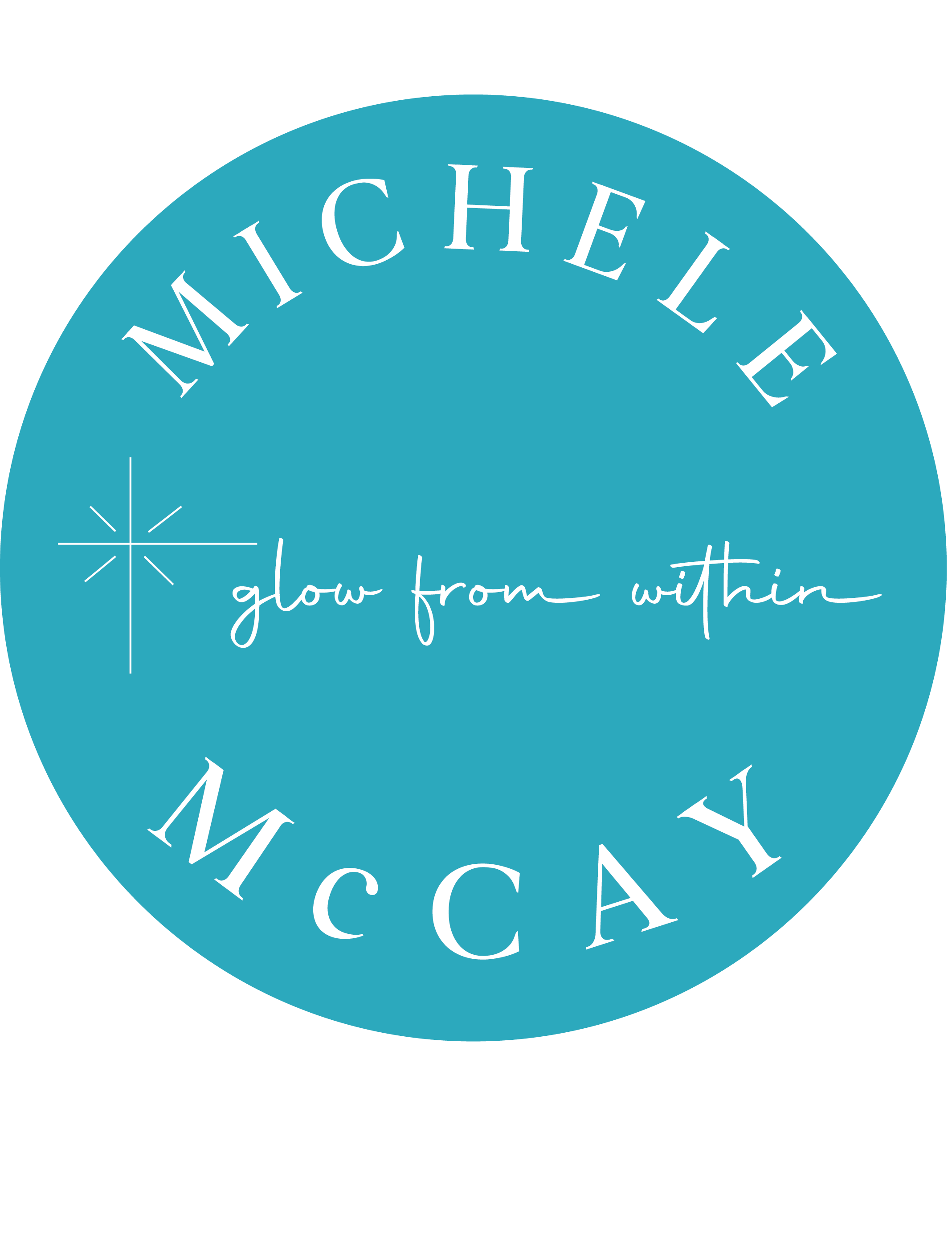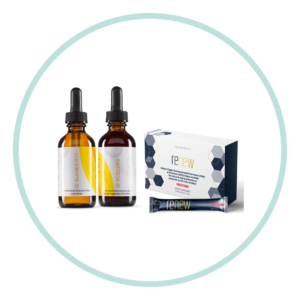Last week we discussed my personal experience with the diagnosis of peri – menopause. I was in such a busy season of my life, I don’t think I even took the time to realize what was happening to my body. Many of you may be feeling the same. So many people just this week (locally) have stopped me and thanked me for sharing my experiences and that they were going through some of the same things I have shared. This is very rewarding for me as I truly want to help those of you going through this stage to be aware of what it is so you can take actions to work (glow) through it instead of struggle. So let’s discuss some of the clinical information associated with menopause. A lot of this information I have obtained from articles by the Mayo Clinic. I have found, even in speaking with my own personal GYN Physician, that there is a huge LACK of information in the U.S. about menopause and how to provide adequate support for women at this time. Thus, why I am sharing. I hope to save you time, tears, hot flashes and LOTS of energy!
Diagnosis
Signs and symptoms of menopause are usually enough to tell most women that they’ve entered peri -menopause. If you have concerns about irregular periods or hot flashes, certainly talk with your doctor sooner rather than later. In some cases, further evaluation may be recommended. I tried to handle my symptoms on my own and lost valuable time and mental exhaustion. Don’t do this!
Tests typically aren’t needed to diagnose menopause. But under certain circumstances, your doctor may recommend blood tests to check your level of:
- Follicle-stimulating hormone (FSH) and estrogen (estradiol), because your FSH levels increase and estradiol levels decrease as menopause occurs
- Thyroid-stimulating hormone (TSH), because an underactive thyroid (hypothyroidism) can cause symptoms similar to those of menopause
Over-the-counter home tests to check FSH levels in your urine are available. The tests could tell you whether you have elevated FSH levels and might be in peri menopause or menopause. But, since FSH levels rise and fall during the course of your menstrual cycle, home FSH tests can’t really tell you whether or not you’re definitely in a stage of menopause. I’d truly encourage you to go see your physician or Nurse Practitioner who has experience in Women’s Health and get a full hormone panel blood test to evaluate where you are in the process.
Treatment
Menopause requires no medical treatment. Instead, treatments focus on relieving your signs and symptoms and preventing or managing chronic conditions that may occur with aging. Treatments may include:
- Hormone therapy. According to the Mayo Clinic articles I researched, they feel Estrogen therapy is the most effective treatment option for relieving menopausal hot flashes. Depending on your personal and family medical history, your doctor may recommend estrogen in the lowest dose and the shortest time frame needed to provide symptom relief for you. If you still have your uterus, you’ll need progestin in addition to estrogen. Estrogen also helps prevent bone loss. Long-term use of hormone therapy may have some cardiovascular and breast cancer risks, but starting hormones around the time of menopause has shown benefits for some women. Talk to your doctor about the benefits and risks of hormone therapy and whether it’s a safe choice for you. ** For me, Bio Identical Hormone Replacement Therapy has been the best option.
- Vaginal estrogen. To relieve vaginal dryness, estrogen can be administered directly to the vagina using a vaginal cream, tablet or ring. This treatment releases just a small amount of estrogen, which is absorbed by the vaginal tissues. It can help relieve vaginal dryness, discomfort with intercourse and some urinary symptoms.
- Low-dose antidepressants. Certain antidepressants related to the class of drugs called selective serotonin re uptake inhibitors (SSRIs) may decrease menopausal hot flashes. A low-dose antidepressant for management of hot flashes may be useful for women who can’t take estrogen for health reasons or for women who need an antidepressant for a mood disorder.
- Gabapentin (Gralise, Horizant, Neurontin). Gabapentin is approved to treat seizures, but it has also been shown to help reduce hot flashes. This drug is useful in women who can’t use estrogen therapy and in those who also have nighttime hot flashes.
- Clonidine (Catapres, Kapvay). Clonidine, a pill or patch typically used to treat high blood pressure, might provide some relief from hot flashes.
- Medications to prevent or treat osteoporosis. Depending on individual needs, doctors may recommend medication to prevent or treat osteoporosis. Several medications are available that help reduce bone loss and risk of fractures. Your doctor might prescribe vitamin D supplements to help strengthen bones.
Before deciding on any form of treatment, talk with your doctor about your options and the risks and benefits involved with each. Review your options yearly, as your needs and treatment options may change. AGAIN – For me, Bio-Identical Hormone Optimization (“pellets”) was the best option. My strong beliefs in the option of hormone replacement therapy came from the fact that my mom was diagnosed with Alzheimers’ at 55 and died at 62. She had a hysterectomy at 47 and never had the option of replacement hormones or any hormone therapy. Her Physician at the time didn’t think she needed it. I BEG TO DIFFER! I begged my mom to look at hormone therapy and because she didn’t have any “symptoms” at the time, she agreed she didn’t need them. But now looking back, she suffered greatly from depression, major emotional ups and downs, weight gain, hot flashes, brain fog, etc. I wish I would have been a more assertive advocate for her like I am being for you all today. It could have been the difference between life and death. For that I will forever be regretful for not being more aggressive in getting her the treatment she needed. We must ALWAYS be an advocate for our own health care and that of our loved ones!
Lifestyle and home remedies
Fortunately, many of the signs and symptoms associated with menopause are temporary. Take these steps to help reduce or prevent their effects:
- Cool hot flashes. Dress in layers, have a cold glass of water or go somewhere cooler. Try to pinpoint what triggers your hot flashes. For many women, triggers may include hot beverages, caffeine, spicy foods, alcohol, stress, hot weather and even a warm room.
- Decrease vaginal discomfort. Try an over-the-counter, water-based vaginal lubricant (Astroglide, K-Y jelly, Sliquid, others) or a silicone-based lubricant or moisturizer (Replens, K-Y Liquibeads, Sliquid, others). You might consider choosing a product that doesn’t contain glycerin, which can cause burning or irritation if you’re sensitive to that chemical. Staying sexually active also helps with vaginal discomfort by increasing blood flow to the vagina.
- Get enough sleep. Avoid caffeine, which can make it hard to get to sleep, and avoid drinking too much alcohol, which can interrupt sleep. Exercise during the day, although not right before bedtime. If hot flashes disturb your sleep, you may need to find a way to manage them before you can get adequate rest.
- Practice relaxation techniques. Techniques such as deep breathing, paced breathing, guided imagery, massage and progressive muscle relaxation may help with menopausal symptoms. You can find a number of books and online offerings that show different relaxation exercises.
- Strengthen your pelvic floor. Pelvic floor muscle exercises, called Kegel exercises, can improve some forms of urinary incontinence. **If you are having any incontinence in urine or stool – please contact your health provider as this could be indicative of pelvic muscle tightness.**
- Eat a balanced diet. Include a variety of fruits, vegetables and whole grains. Limit saturated fats, oils and sugars. Ask your provider if you need calcium or vitamin D supplements to help meet daily requirements.
- Don’t smoke. Smoking increases your risk of heart disease, stroke, osteoporosis, cancer and a range of other health problems. It may also increase hot flashes and bring on earlier menopause.
- Exercise regularly. Get regular physical activity or exercise on most days to help protect against heart disease, diabetes, osteoporosis and other conditions associated with aging.
All of these are great suggestions of which many I tried and were successful at helping me feel a little better. But I can truthfully tell you my symptoms did not substantially improve until starting hormone replacement therapy. I feel as good or better than I felt at age 35-40 since starting Hormone Optimization almost 3 years now. I truly feel like a new person and am GLOWING Through Menopause instead of suffering through it. I want you to feel the same and GLOW WITH ME!
For more information on Bio-Identical Hormone Optimization please visit: https://www.biotemedical.com/find-bioidentical-hormone-replacement-therapy-provider/
Best Selling Book by the CEO and founder of BioTE Gary Donovitz, MD: AGE Healthier Live HAPPIER. https://rb.gy/ggxkhb
For support and encouragement throughout your journey, please join my social media pages: https://linktr.ee/michelemccay


